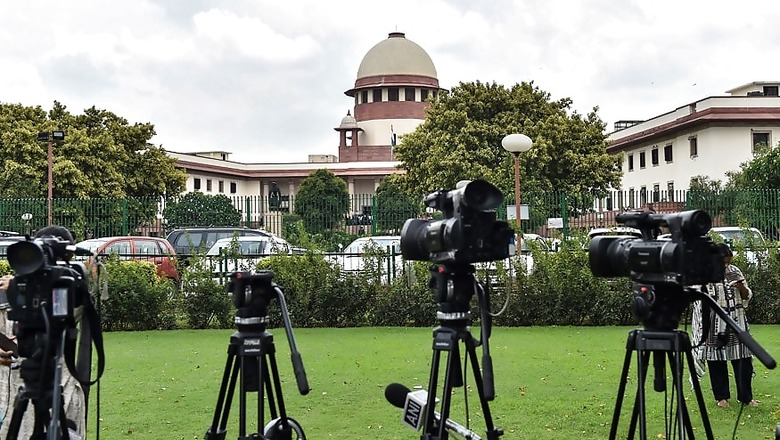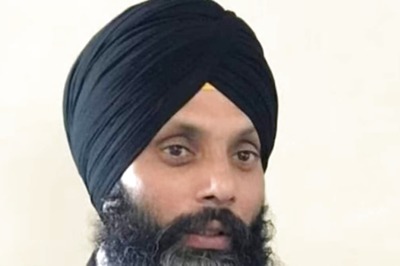
views
New Delhi: Questioning if the RTI activism has become a full time profession, the Supreme Court on Monday pointed out that the transparency law has also become a tool of “blackmail”.
A bench headed by Chief Justice of India SA Bobde observed that there are various instances where the Right To Information (RTI) law has been used to intimidate people.
"There have been innumerable cases of blackmail in the garb of RTIs," said the bench, as it heard a petition by RTI activist Anjali Bhardwaj on filling up of vacancies in the Information Commissions at the Centre and in states.
When advocate Prashant Bhushan cited the court's previous order in the PIL, the CJI raised the issue of vested interests being propagated through the transparency law.
"People are afraid of taking decisions because of the RTI provisions. We are being told no officer wants to write anything, take a view because of this law," observed the bench, which also included Justices BR Gavai and Surya Kant.
Bhushan replied that the officers will be afraid if they do something illegal but the chief said:" Not everyone does everything illegal."
"The purpose of the RTI was perhaps to elicit information about what concerned them. But we are seeing all types of people filing all kinds of applications...who have nothing to do with these subjects. There is no concept of locus in this law," added Justice Bobde.
The bench further asked Bhushan: "Is RTI activism a profession now? In Mumbai, you will find letter heads printed like that. This may invite Section 506, IPC. It is a very serious matter...criminal intimidation…which is a nicer word for blackmailing."
The CJI lamented that the RTI applications are being filed with malafide interests.
"We aren't against the RTI but is it not necessary to evolve some kind of guidelines? This unbridled right... There are times when applicants are set up by rivals. Why should we not have some kind of filters? It cannot be anybody asking anything," opined the top court.
Bhushan argued that there can be no harm in seeking information about issues of public interests since it may unravel corruption.
But the CJI retorted: "We are asking you about ways to stop abuses. You are arguing as if there are no abuses. Locus isn't a foreign concept in law. In PILs, we are wary of abuses. There has to be some filters in this law too."
The Court then asked Bhushan to think of certain guidelines in this regard.
On the issue of appointment, the bench gave the Centre three months to fill up all vacancies in the Central Information Commission. It also asked them to make public the names of the members of the Search Committee within two weeks.




















Comments
0 comment